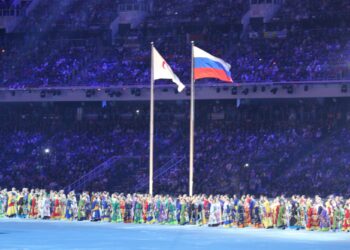The United States Department of Commerce has imposed new export restrictions on advanced artificial intelligence (AI) chips, drawing sharp responses from affected countries, including Poland. The measures, announced earlier this week, categorize countries into three groups, limiting access for those deemed less critical to U.S. strategic interests.
While major European allies such as Germany, France, and the United Kingdom are exempt from the restrictions, Poland finds itself grouped in a secondary category alongside nations like Switzerland, India, and several African and South American countries.
Polish officials, including Deputy Minister of Digitalization Dariusz Standerski, have expressed disappointment with the decision, emphasizing the potential implications for Poland’s technological growth and security.
“Such measures underline the need for the European Union to address digital sovereignty much sooner,” Standerski said during a radio interview. “In the short term, these restrictions won’t hinder our AI development. However, their arbitrary nature poses a long-term challenge for planning and public procurement.”
Chip Export Limits Defined
The new rules limit Poland’s AI chip imports to 50,000 units annually, with the possibility of increasing to 100,000 under certain conditions. For a country aiming to expand its computational capabilities significantly, this quota raises concerns about its ability to keep pace with global technological advances.
🇺🇸🇵🇱 USA Imposes New Chip Import Sanctions on Poland
— Poland 24 🇵🇱 (@poland24com) January 14, 2025
The USA has placed Poland in the “second category” of countries facing restrictions on importing advanced chips, including those from Nvidia. Poland can now import only 50,000 chips, with a potential increase to 100,000.
This… pic.twitter.com/jyzb3GjRXw
Standerski assured that Poland’s immediate needs would not exceed 5% of the imposed limit but stressed the importance of strategic planning. “Our challenge lies in ensuring stability for future investments in AI and semiconductor production,” he noted.
U.S. Allies and EU Criticism
The restrictions reflect Washington’s effort to curb global competition in AI development, a sector increasingly viewed as a critical frontier for national security. While countries such as Australia, Japan, and South Korea fall into the top category with unlimited access to advanced U.S. chips, Poland’s exclusion has raised eyebrows.
Poland’s embassy in the U.S. has formally requested an explanation, while the European Commission has voiced its disapproval, calling for greater transparency in Washington’s policies. EU officials Henna Virkkunen and Maroš Šefčovič issued a joint statement urging the U.S. to reconsider its measures. “In the interest of economic and security stability, advanced AI chips should remain accessible to all EU member states without restrictions,” the statement read.
Boosting Domestic Semiconductor Capabilities
Poland’s response to the export limits includes accelerating domestic efforts to enhance its semiconductor sector. According to Standerski, the Ministry of Digitalization is drafting a semiconductor policy aimed at attracting foreign investors and scaling up local chip production.
“Poland already manufactures some semiconductors,” Standerski revealed. “Our immediate task is to expand this capability, create opportunities for larger-scale production, and secure investments for building substantial facilities.”
Warsaw Polytechnic and other academic institutions are conducting research on semiconductor technologies to address some domestic demand. These initiatives aim to minimize reliance on imported chips in the long term.
The government also sees this issue as closely tied to national defense. “AI-driven technologies are crucial for our defense industries and productivity across multiple sectors,” Standerski explained, emphasizing the importance of Poland’s long-term self-reliance in chip production.
Broader Implications and Future Challenges
The U.S. restrictions have sparked debates across Europe about the need for greater digital independence. Poland, alongside other affected nations, is advocating for unified action under the EU’s semiconductor strategy, which includes a proposed European Chips Act.
“Poland needs to ensure it remains competitive by implementing comprehensive policies that attract top-tier semiconductor companies and establish a foothold in this essential industry,” Standerski said.
With the current restrictions set to remain in effect until at least 2027, Poland faces an uncertain path. A potential change in U.S. administration during this period could alter the dynamics, but the unpredictability complicates long-term planning.
Collaboration and Advocacy
Poland plans to collaborate with other EU nations to address the issue collectively. “This is a moment for Europe to push forward a unified strategy,” Standerski emphasized, adding that public procurement, defense readiness, and economic competitiveness depend on reliable access to AI chips.
Poland’s exclusion from the unrestricted category has also drawn attention to broader geopolitical considerations. As Washington tightens its grip on AI technology exports, the decision highlights the strategic complexities of balancing alliances and technological competition.
Standerski concluded on an optimistic note, emphasizing Poland’s determination to adapt to these challenges. “The future depends on how effectively we prepare today. Poland will not only meet these challenges but emerge stronger,” he said.

















